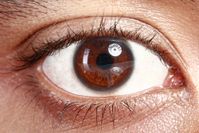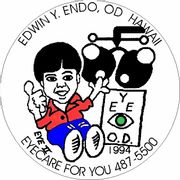Human Night Vision vs. Animal Night Vision

Human eyes are complex structures and are capable of quickly processing an incredible amount of visual information. As impressive as this may be, your visual perception has limitations that not even the best optometrists can alter. When it comes to seeing after dark, you may be wondering how your night vision compares to other species. To shed some light on the matter, a leading eye doctor at Edwin Y. Endo, OD & Associates in Aiea, HI, explains.
With a reputation as Oahu’s best optometrists, each eye doctor in their office has extensive knowledge and training. As a result, their team of experts is well positioned to explain how human night vision stacks up against animals.
Each living creature’s visual perception is based on how its eyes can process light. To achieve this, two very important types of cells are at work: rods and cones. People have a mix of both types of cells within their eyes. Cones are concentrated toward the center of the retina, and rods are located around its edges.
 Cone cells are special types of photoreceptors responsible for color perception. Humans have three types of cone cells and can see blue, red, and green wavelengths of light. As a result, people can see sharp, detailed images in full color. However, without relatively bright light, cone cells don’t function effectively, making them less useful at night.
Cone cells are special types of photoreceptors responsible for color perception. Humans have three types of cone cells and can see blue, red, and green wavelengths of light. As a result, people can see sharp, detailed images in full color. However, without relatively bright light, cone cells don’t function effectively, making them less useful at night.
In contrast, rod cells can function in dimmer environments, enabling the ability to see in low light. Unfortunately, humans have more cones than rods, so visual perception becomes significantly less sharp after dark. Nocturnal animals, as well as some domestic animals like dogs, cats, and horses, have a high concentration of rods and a low concentration of cones, allowing them to see better at night.
Although you may not have superior night vision, protecting your eye health is essential. To keep your eyes in top condition, visit an optometrist for regular checkups. If you have additional questions about your vision, contact Edwin Y. Endo, OD & Associates. With their commitment to providing the most advanced and comprehensive eye care, it’s no wonder these award-winning doctors are known as Hawaii’s best optometrists. Visit the website for more information, or call (808) 487-5500 to schedule an appointment.
About the Business
Have a question? Ask the experts!
Send your question

